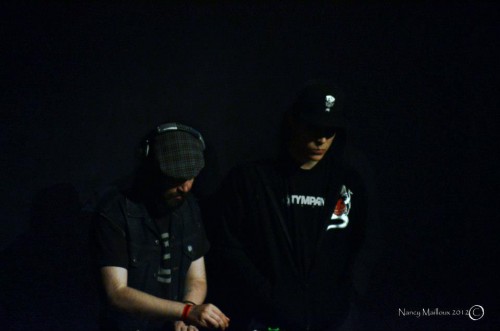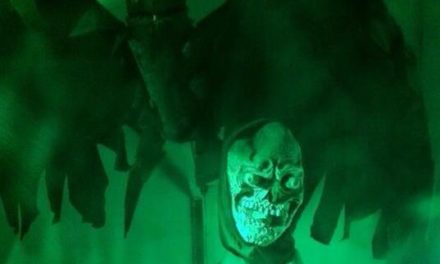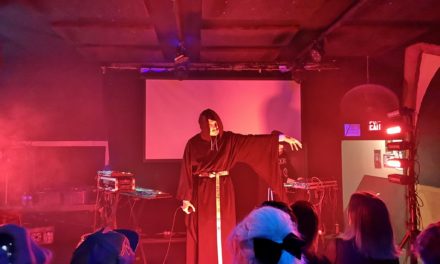
In this episode of the official I Die: You Die podcast, we’re tackling the ever thorny issue of the DJ in this episode of the podcast. Obviously this ties in with all sorts of other changes to the musical landscape that have happened in the past fifteen or so years, so we’ll try to restrict ourselves to talking about DJing in the goth/industrial end of the pool, but this should still prove to be a rather careening convo. Rate, review and subscribe on iTunes or Stitcher, download directly or stream from the widget below!
We Have a Technical 56: Both a Little Bit Right






AH! This entire podcast is my entire life of ranting as a promoter and DJ. Too many thoughts on this.
Ha yes! So much this, as someone from the scene but who also has a foot in the wider clubbing / electronic music scene I personally find the level of skill in DJing in our thing to be a complete and utter embarrassment, I’ve seen people in our scene using Virtual DJ to automatically sync beat-match and mix tracks. I go to a lot of Hardcore / Drum and Bass / techno / bass music nights and festivals and I know what a properly mixed set should sound like and coming back to goth nights I do feel a certain amount of cringe. Its not that hard to beatmatch, mix and crossfade using DJing software these days, I couldn’t do it manually but I do at least make an effort (and I reckon my tune selection is pretty good) and I think my sets stand up quite well. I can’t help but chalk it down to ignorance and tribalism. Fingers crossed that its changing, industrial music is still amazing stuff!
I’m enjoying the discussion tons.
The problem that you mention about 135bpm stompy tracks being less of a driver makes sense, because so much of it is the same at a glance. The state of that art has been fairly stagnant, with predictably stabby leads and heavily processed, sometimes unintelligible, vocals.
Sadly, I still have a hard time getting DJs to try a track that could be a bad ass club jam, given a tiny bit production assist from the DJ. For instance, For I Am Cursed by Youth:Code is a god damn masterpiece. I have yet to succeed in getting it played anywhere. It is danceable, catchy, and could blend right out of some classic SP, if that is what it takes to be heard.
That is why I doubt that the clubs can get a lot of people to swarm the dancefloor sans that 4/4 stomp though. As someone who has danced at clubs for 15 years, it just makes things more fun. Maybe not “interesting/experimental” but damn fun. Also, it tends to be that hook that makes the tourists that frequent the bars happy to stay, spend money, and keep the doors open for our inarguably smaller scene.
(Personal aside: As someone who writes 135bpm stompy tracks, I fight to avoid that framework. No main vocal processing beyond compression. Leads that sound more orchestral than theatrical, usually. No vocal samples that are not wholly original. This is in direct response to how stagnant the style seems, and is an attempt to push it a step into the 2010s, and something I can comfortably perform and identify with as a man in his mid thirties.)